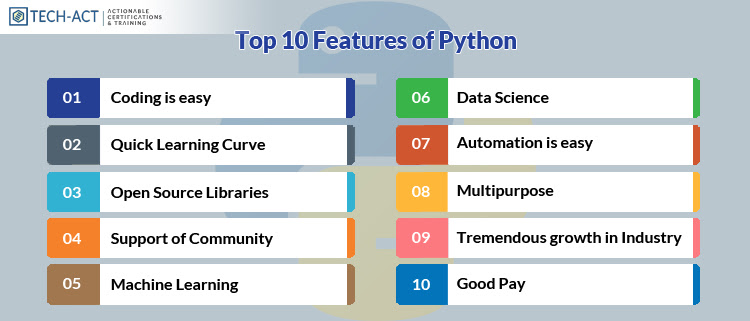Python 3.12 has officially been released, bringing a host of exciting features and updates that promise to enhance the programming experience for developers around the globe. This latest version not only improves performance but also introduces new syntax enhancements, better error messages, and a variety of library updates that make coding in Python more efficient and enjoyable. Whether you are a seasoned Pythonista or just starting your coding journey, understanding the key features of Python 3.12 is essential for leveraging its full potential.
In this article, we will delve into the most significant updates that Python 3.12 has to offer. You will learn about the new performance optimizations that can speed up your applications, as well as the enhancements in type hinting that make your code more readable and maintainable. Additionally, we will explore the improved error messages that help developers troubleshoot issues more effectively, saving valuable time during the debugging process.
As we navigate through the key features and updates of Python 3.12, you will also discover how these changes can impact your development workflow and the overall efficiency of your projects. Stay with us as we unpack these exciting advancements and provide insights on how to make the most of Python 3.12 in your coding endeavors. Don’t miss out on the opportunity to elevate your programming skills with the latest tools and techniques!
Improved Performance and Speed
The release of Python 3.12 brings significant performance enhancements that are crucial for developers looking to optimize their applications. With various optimizations in the interpreter and standard library, Python 3.12 is designed to execute code faster than its predecessors. This improvement is particularly noticeable in computationally intensive tasks, making it an attractive option for data science and machine learning applications.
One of the key performance upgrades is the introduction of specialized bytecode for certain operations, which reduces the overhead associated with function calls and variable lookups. This means that developers can expect a more responsive experience when running their Python applications, especially in scenarios where performance is critical.
New Syntax Features
Python 3.12 introduces several new syntax features that enhance code readability and maintainability. One of the most notable additions is the support for pattern matching enhancements, which allows developers to write more expressive and concise code. This feature is particularly useful in scenarios where complex data structures need to be deconstructed or analyzed.
Additionally, the new syntax for f-strings has been improved, allowing for easier formatting and manipulation of strings. These enhancements not only streamline the coding process but also reduce the likelihood of errors, making Python 3.12 a more robust choice for developers of all skill levels.
Enhanced Error Messages
One of the standout features of Python 3.12 is the improvement in error messages. The Python development team has focused on making error messages more informative and user-friendly. This change is particularly beneficial for beginners who may struggle to understand the implications of an error.
With clearer explanations and suggestions for resolving issues, developers can spend less time debugging and more time writing code. This enhancement aligns with Python’s philosophy of being an accessible programming language, making it easier for newcomers to learn and adopt Python for their projects.
Type Hints and Static Typing Improvements
Python 3.12 continues to build on the static typing features introduced in earlier versions. The enhancements in type hints allow for more precise type annotations, which can lead to better code quality and fewer runtime errors. Developers can now leverage advanced type hinting capabilities, such as the ability to define more complex types and use type guards.
This focus on static typing not only aids in code clarity but also enhances the functionality of tools like linters and IDEs, which can provide more accurate feedback during development. As a result, Python 3.12 is becoming increasingly appealing for large-scale projects where type safety is a priority.
Standard Library Updates
The standard library in Python 3.12 has received several updates that enhance its functionality and usability. New modules and improvements to existing ones provide developers with more tools at their disposal. For instance, the introduction of new data structures and algorithms can simplify common programming tasks and improve code efficiency.
Moreover, the updates to existing libraries ensure that they are more in line with modern programming practices. This means that developers can rely on the standard library to provide robust solutions without needing to seek third-party packages, thereby streamlining the development process.
Deprecations and Removals
As with any major release, Python 3.12 comes with a list of deprecated features and modules that developers should be aware of. Understanding these changes is crucial for maintaining code compatibility and ensuring that applications continue to function as expected. The deprecation process is part of Python’s commitment to evolving the language while minimizing disruption to its user base.
Developers are encouraged to review the official documentation for a comprehensive list of deprecated features and to plan for necessary code updates. By staying informed about these changes, developers can ensure a smooth transition to Python 3.12 and take full advantage of its new capabilities.
| Feature | Description |
|---|---|
| Performance Improvements | Python 3.12 introduces several optimizations that enhance the performance of the interpreter, making it faster than previous versions. |
| Faster Startup Time | Improvements in the startup time of Python scripts, allowing for quicker execution of programs. |
| New Syntax Features | Introduction of new syntax features, including the ‘match’ statement enhancements for more powerful pattern matching. |
| Type Hints Enhancements | Improvements in type hinting, including support for more complex types and better error messages for type mismatches. |
| Deprecation of Old Features | Some older features and modules have been deprecated to streamline the language and encourage best practices. |
| Standard Library Updates | Numerous updates and enhancements to the standard library, including new modules and improved existing ones. |
| Improved Error Messages | More informative error messages that help developers quickly identify and fix issues in their code. |
| Security Enhancements | Increased focus on security, with updates to libraries and features that help protect against common vulnerabilities. |
| Community Contributions | Many new features and improvements are a result of contributions from the Python community, showcasing collaborative development. |



